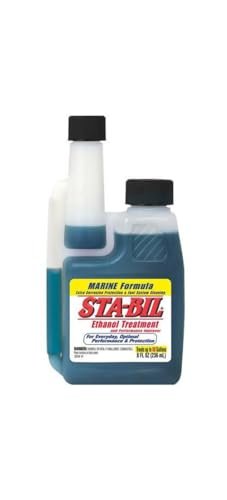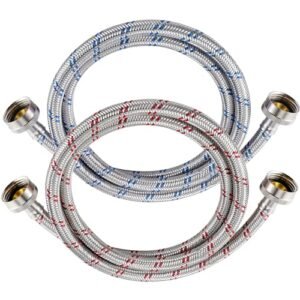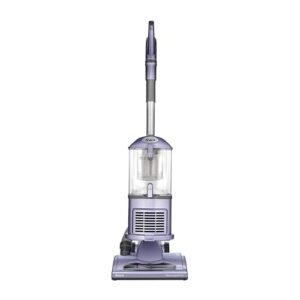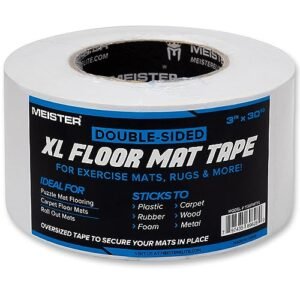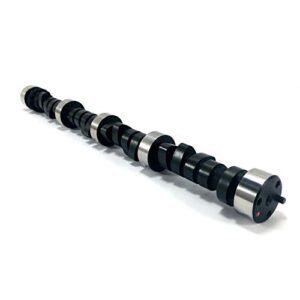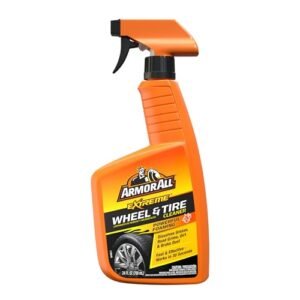Getting your boat ready for the off-season or a long period of inactivity? This guide will help you choose the best fuel stabilizer for your needs. We’ve reviewed seven popular options, comparing their features, pros, and cons to help you make an informed decision and avoid potential engine damage from stale fuel. We’ll cover everything from long-term storage solutions to in-season treatments, so you can keep your boat’s engine running smoothly, regardless of how often you use it.
| IMAGE | PRODUCT NAME | AMAZON LINK |
|---|---|---|

|
STA-BIL 360 Marine Ethanol Treatment and Fuel Stabilizer -… |
View on Amazon |

|
STA-BIL Fuel Stabilizer – 16oz |
View on Amazon |

|
Quicksilver 8M0047922 Quickstor Fuel Treatment and… |
View on Amazon |

|
STAR BRITE Star Tron Enzyme Fuel Treatment – Concentrated… |
View on Amazon |
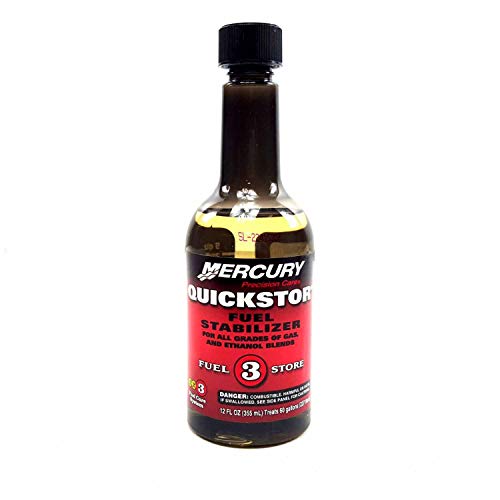
|
Mercury Marine 12oz Quickstor Fuel Stabilizer Treatment… |
View on Amazon |

|
STA-BIL 32 oz Fuel Stabilizer ( pack of 2 ) |
View on Amazon |

|
Star Tron Stabilizer+ Fuel Storage with Corrosion… |
View on Amazon |
1. STA-BIL 360 Marine Ethanol Treatment and Fuel Stabilizer
STA-BIL 360 Marine is a comprehensive treatment boasting more than just stabilization. It actively cleans your fuel system, removing water, gum, and varnish. This makes it ideal for boats that sit for extended periods or experience occasional use. The added corrosion protection is a significant bonus for marine engines.
- Cleans the entire fuel system
- Protects against corrosion
- Improves fuel performance and mileage
- Treats 10 gallons of fuel per ounce
- Suitable for both in-season use and storage (with the appropriate STA-BIL product for storage)
Pros:
– Multi-functional: cleans, protects, and stabilizes.
– Excellent corrosion protection.
– Widely available.
Cons:
– May not be the most economical choice for solely stabilization.
– Requires separate storage stabilizer for long-term storage.
User Feedback Summary: Generally positive reviews praising its cleaning power and overall performance benefits. Some users find it slightly pricey compared to other stabilizers.
2. STA-BIL Fuel Stabilizer – 16oz
This is STA-BIL’s classic fuel stabilizer, a tried-and-true option for preventing fuel degradation. It’s a simple, effective solution for keeping fuel fresh, especially during shorter periods of inactivity. While not as feature-rich as the 360 Marine, it’s a reliable and affordable choice for basic stabilization.
- Great for preventing fuel breakdown
- Easy to use
- Widely available and affordable
Pros:
– Simple and effective.
– Cost-effective.
– Widely available.
Cons:
– Doesn’t offer cleaning or corrosion protection.
– Less effective for extended storage than specialized marine stabilizers.
User Feedback Summary: Mostly positive; users appreciate its simplicity and effectiveness for shorter-term storage.
3. Quicksilver 8M0047922 Quickstor Fuel Treatment and Stabilizer
Specifically designed for long-term storage, Quicksilver Quickstor provides up to two years of protection. It’s a reliable choice for boat owners who store their vessels for extended periods. The fact that it meets Mercury Marine specifications lends it additional credibility for Mercury engine owners.
- Stabilizes fuel for up to two years
- Prevents fuel breakdown and oxidation
- Meets Mercury Marine OEM specifications
Pros:
– Excellent for long-term storage.
– Good reputation.
Cons:
– Primarily for storage; doesn’t offer cleaning capabilities.
– May be more expensive than some alternatives.
User Feedback Summary: Users report consistent results and appreciate its long-term effectiveness.
4. STAR BRITE Star Tron Enzyme Fuel Treatment – Concentrated
Star Tron uses enzymes to break down contaminants and stabilize fuel. It’s known for its ability to revitalize older fuel and address ethanol-related issues. This makes it a versatile choice for various situations, from preventing problems to resolving existing ones.
- Works in all fuels and engines
- Addresses ethanol-related problems
- Revitalizes old fuel
- Improves fuel economy
- Reduces emissions
Pros:
– Versatile and effective for various issues.
– Can help rejuvenate older fuel.
– Improves fuel economy.
Cons:
– Can be more expensive than other options.
– Some users report a slightly stronger smell.
User Feedback Summary: Users generally praise its effectiveness in resolving fuel-related issues and improving engine performance.
5. Mercury Marine 12oz Quickstor Fuel Stabilizer Treatment
Another Mercury Marine product, this Quickstor offers a convenient 12oz bottle treating a significant amount of fuel. Similar to the Quicksilver Quickstor, it’s designed for long-term storage, preventing fuel degradation and the formation of gum and varnish. This is a good choice for those with Mercury engines looking for a reliable storage solution.
- Stabilizes fuel for up to one year
- Prevents fuel breakdown and oxidation
- Prevents gum and varnish formation
- Safe for catalyzed engines
Pros:
– Specifically designed for long-term storage.
– Good for Mercury engines.
Cons:
– Only for storage, not in-season use.
– May be pricey compared to some other options.
User Feedback Summary: Solid reviews highlighting its effectiveness in protecting fuel during extended storage.
6. STA-BIL 32 oz Fuel Stabilizer (pack of 2)
This is a bulk option of the standard STA-BIL formula, offering excellent value for those who need to treat a large volume of fuel. It provides reliable protection against fuel degradation, ensuring easy starts and preventing issues related to stored fuel.
- Prevents gum and varnish formation
- Keeps stored fuel fresh
- Allows for storage without draining fuel
- Prevents corrosion
Pros:
– Cost-effective for larger fuel tanks.
– Reliable performance.
Cons:
– Doesn’t offer cleaning or corrosion protection beyond basic stabilization.
– Not as versatile as some other options.
User Feedback Summary: Positive feedback focusing on its value and reliability for basic fuel stabilization.
7. Star Tron Stabilizer+ Fuel Storage with Corrosion Inhibitor
Star Tron Stabilizer+ combines fuel stabilization with corrosion protection. It utilizes enzymes to maintain fuel freshness and protect against contaminants, while also providing an extra layer of protection against rust and corrosion within the fuel system.
- Enhanced fuel stability using enzymes
- Corrosion protection
- Prevents buildup of moisture, gum, varnish, and carbon deposits
- Versatile application across various gas engines
Pros:
– Combines stabilization and corrosion protection.
– Effective at preventing various fuel-related problems.
– Easy to use.
Cons:
– May be slightly more expensive than some basic stabilizers.
User Feedback Summary: Users appreciate the combined benefits of stabilization and corrosion protection.
Practical Buying Advice:
Consider these factors when selecting a fuel stabilizer:
- Storage duration: For short-term storage (a few months), a basic stabilizer like the standard STA-BIL may suffice. For longer periods, a product offering longer-term protection like Quicksilver Quickstor or Star Tron Stabilizer+ is recommended.
- Engine type and fuel: Ensure the stabilizer is compatible with your engine type and the type of fuel you use (regular, ethanol-blended, etc.).
- Additional features: Do you need cleaning capabilities, corrosion protection, or ethanol treatment? Choose a product that addresses your specific needs.
- Budget: Prices vary significantly between products. Determine your budget before making your selection.
Frequently Asked Questions (FAQ):
Q: How often should I use a fuel stabilizer? A: This depends on storage duration. For short-term storage (less than a month), it might not be necessary. For longer periods, use a stabilizer according to the manufacturer’s instructions.
Q: Can I use a fuel stabilizer in-season? A: Yes, some stabilizers, like STA-BIL 360 Marine, are designed for both in-season use and storage. Others are primarily for storage. Check the product label.
Q: How much stabilizer should I use? A: Always follow the manufacturer’s instructions. The dosage will vary depending on the product and the amount of fuel in your tank.
Q: Can I mix different fuel stabilizers? A: It’s generally not recommended. Stick to using one type of stabilizer at a time.
Q: What happens if I don’t use a fuel stabilizer? A: Stale fuel can lead to engine problems like gumming, varnish buildup, corrosion, and difficult starts. In extreme cases, it can cause significant engine damage.
Q: How do I know if my fuel stabilizer is working? A: You won’t see immediate visual results. The primary benefit is preventing future problems. Easy starting and consistent engine performance after storage are good indicators of effectiveness. If you experience issues, it might indicate insufficient treatment or fuel degradation.
Q: Does using a stabilizer void my warranty? A: It shouldn’t, provided you use the stabilizer as directed by the manufacturer. Always check your engine’s owner’s manual and consult with your dealer if you have concerns.
Affiliate Disclosure: As an Amazon Associate, I earn from qualifying purchases made through links on this site.

